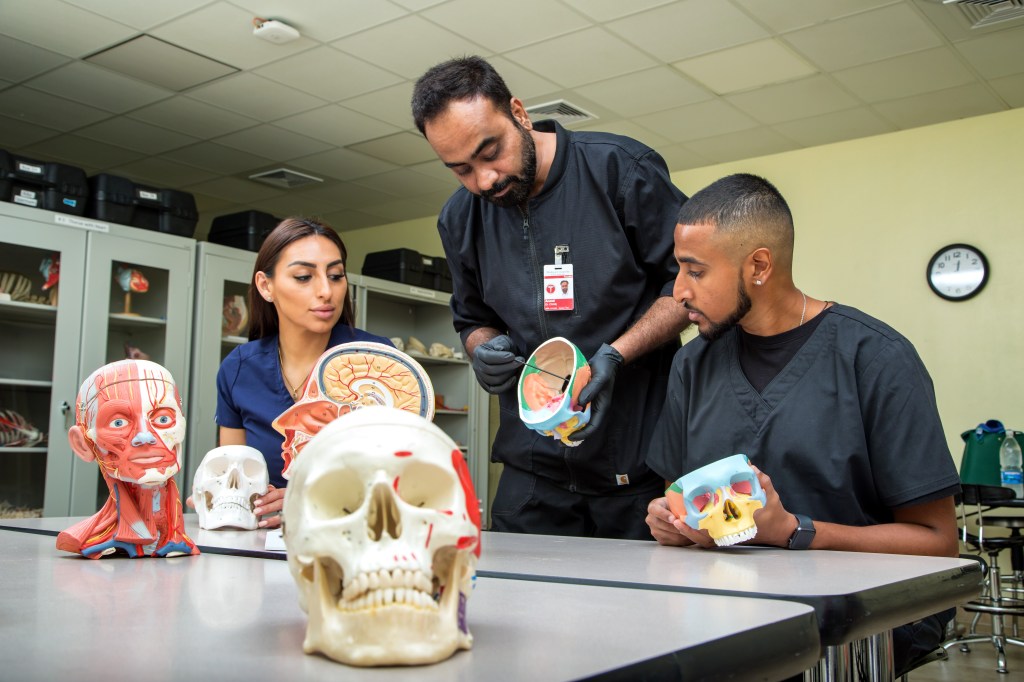
Questions?
Please contact us at info@mua.edu for more information.
Get to know MUA at an upcoming event!

Program Length: 3.5 months
This is a lecture and laboratory course where students will acquire a basic knowledge of both the gross structure and functional anatomy of organs and systems. Concurrent with lecture and small group work, students participate in laboratory sessions and study a variety of imaging techniques (including X-rays, CT, and MRI scans). Emphasis is on the identification of normal gross structures with lectures and demonstrations to illustrate clinically relevant normal and abnormal findings.
During this course students learn the normal functions and regulation of cells, organs and organ systems and physiological integration of the systems to maintain homeostasis—with emphasis on clinically relevant concepts. Lectures cover the neural and humoral homeostatic mechanisms and understanding of the physiology of muscular, cardiovascular, respiratory, endocrine, reproductive, gastrointestinal and renal systems. In addition, the pathophysiology of selected disease states is explored.
This course consists of two integrated components: advanced learning methods; and medical terminology. Advanced learning methods will help students preparing to enter medical school develop the study, learning, and test-taking skills they will need to successfully deal with the volume and complexity of information involved in the medical school curriculum. Medical terminology prepares pre-medical students for the complex language of medicine. Students will become familiar with the vocabulary for accurately describing the human body and associated components, conditions, and processes in a scientific manner. This course will also help students understand unfamiliar medical terms and appreciate their clinical applications.
In this course, students will gain an understanding of cellular functions. Topics include: macromolecular function and regulation, mechanisms of gene expression and inheritance, cell structure and function and diagnostic biotechnology.

Please contact us at info@mua.edu for more information.